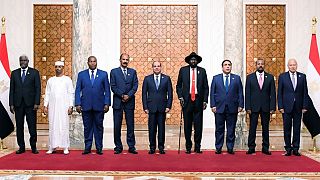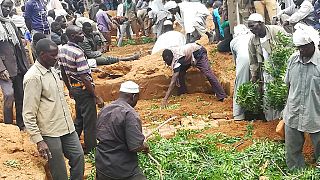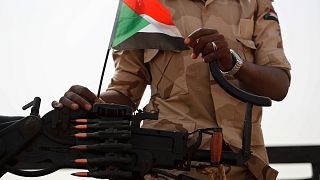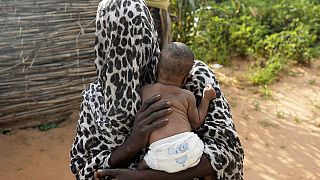Sudan
The head of the UN mission in Sudan, Volker Perthes, says the Sudan conflict could turn into an ethnic and tribal civil war as warring sides step up efforts to recruit fighters.
Sudan's warring sides must face "accountability" for the "crimes" committed in their conflict, which risks spiralling into a regional crisis, the head of UN mission in the country said Wednesday.
The fighting, which has gone on for three months, "risks morphing into an ethnicised, tribalised and ideologised conflict which is much closer to being a full-blown civil war," the official, Volker Perthes, told reporters in Brussels.
Already the multiple human rights violations carried out, including "murder, rape and looting," are fuelling a desire among ordinary Sudanese to see the back of the warring generals, he said.
"The interpretation of what I hear is that a majority of the Sudanese don't want these generals to continue in any way in the country," Perthes said.
While he was not directly calling for the International Criminal Court (ICC) to bring the generals to justice, he said: "The ICC of course is watching -- it's not up to me to ask the ICC to take action, but I think they are on it."
Fighting has raged in Sudan since mid-April, when army chief Abdel Fattah al-Burhan and his former deputy Mohamed Hamdan Daglo, who commands the paramilitary Rapid Support Forces (RSF), turned on each other
Around 3,000 people have been killed, and the UN has warned of possible crimes against humanity in the western region of Darfur.
"It's almost three months into the war and still none of the two sides is able to score a decisive victory," Perthes said.
He said the situation was causing a "humanitarian catastrophe -- again" in Sudan, and putting pressure on neighbouring Chad, which was taking in many Sudanese refugees and whose food supply lines through Sudan were cut.
That building crisis, with the risk of migration flows, should concern Europe, he said.
- Bids at diplomacy -
Perthes said the UN backed "linked" diplomatic overtures by the east African regional bloc IGAD and an Egypt-hosted summit of Sudan's neighbours on Thursday.
"We also see a risk that neighbouring states are being dragged into the conflict," he said. "So there is a risk of this becoming a regional conflict, and a civil war inside the country."
Perthes said it was important that countries supplying one or the other side in the conflict stop doing so, to push Sudan's generals to a ceasefire.
"This war will not end with a week or two weeks, or shortly in any respect, so regional actors are still in a way trying to find out what leverage they have and in which form they can best apply this leverage."
Perthes, whom army chief Burhan on June 9 ordered out of Sudan as "persona non grata", said his deputy was running the UN mission's operations on the ground out of Port Sudan, while he was moving the main office to Kenya's capital Nairobi.
On the sidelines
Smoke rose in Khartoum on Wednesday after a strike hit buildings in the capital, one day ahead of a meeting in Cairo where Sudan’s neighbours will gather to discuss ways to end the conflict.
The raging conflict has driven more than 3 million people from their homes, including over 700,000 who fled to neighbouring countries, the U.N. said Wednesday.
During the meeting in Cairo on Thursday, Sudan’s neighbours aim to establish “effective mechanisms” to help find a peaceful settlement to the conflict, according to the Egyptian presidency.
Sudan has plunged into chaos since mid-April when months long tensions between the military and its rival, the paramilitary Rapid Support Forces, exploded into open fighting in the capital and elsewhere across the northeastern African nation.
More than 2.4 million people have fled their homes to safer areas inside the country, according to the International Organization for Migration. Around 738,000 others crossed into neighbouring countries, the agency said.












01:09
Liberian president issues official apology to civil war victims
01:49
Sudanese refugees in Chad face deepening humanitarian crisis
01:11
Sudan: U.S. sanctions over alleged chemical weapons use come into force
01:47
'Minerals': Researcher explains U.S. interest in DRC-Rwanda truce
01:51
South Sudan launches military court to enforce accountability and justice
01:52
Why Juneteenth matters: the day slavery truly ended in the U.S.